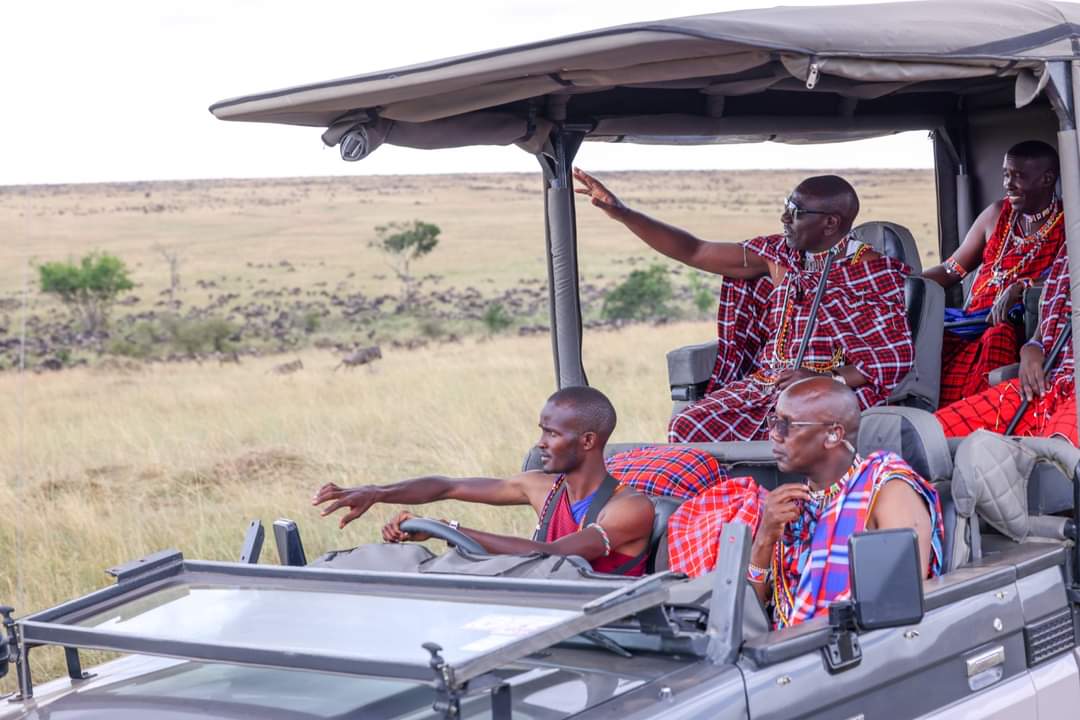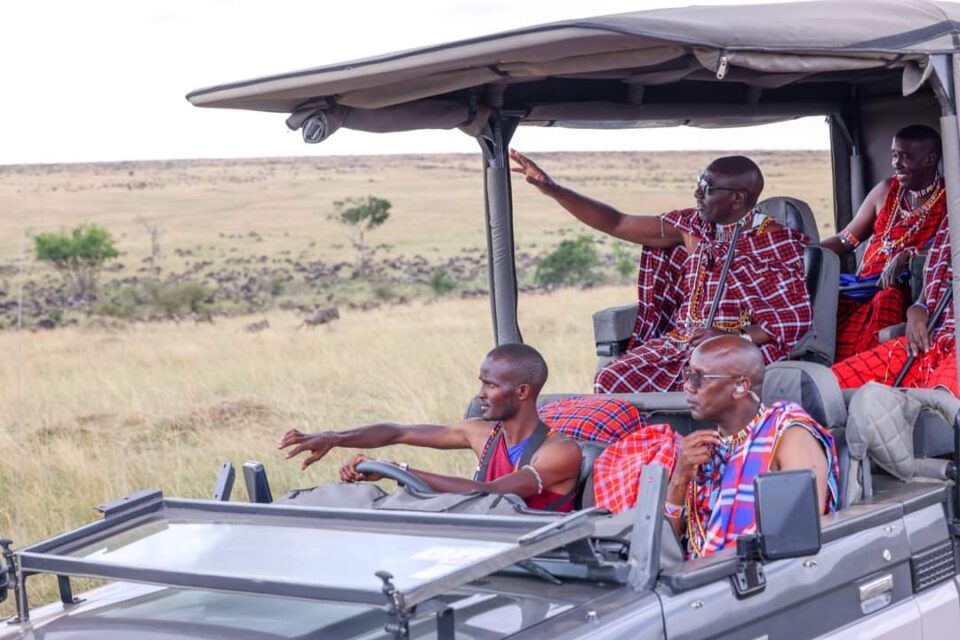In a significant move aimed at preserving the pristine environment and enhancing the wildlife experience for tourists, the Narok County Government has announced a ban on the use of private cars in the Maasai Mara National Reserve.
Effective immediately, only designated safari vehicles such as safari trucks, safari land cruisers, and safari vans will be permitted for game drives within the park.
Enhancing Conservation Efforts
The decision to ban private cars is rooted in the county government’s commitment to conservation. The Maasai Mara is one of the world’s most renowned wildlife reserves, attracting millions of visitors each year who come to witness its rich biodiversity and the spectacular annual wildebeest migration.
However, the influx of private cars has been a growing concern, contributing to environmental degradation and disrupting wildlife habitats.
By restricting access to specific safari vehicles, the county aims to minimize the ecological footprint left by tourists. Safari trucks and land cruisers are designed to navigate the challenging terrain of the Maasai Mara without causing significant damage to the environment.
These vehicles are also better equipped to handle the needs of game drives, ensuring that tourists can enjoy a safe and immersive wildlife experience without compromising the park’s ecological integrity.
Improving Visitor Experience
In addition to environmental considerations, the ban on private cars is expected to significantly improve the overall visitor experience. Safari vehicles are typically operated by experienced guides who possess an in-depth knowledge of the park’s flora and fauna.

These guides enhance the safari experience by providing valuable insights and ensuring that visitors have the best opportunities to observe wildlife in their natural habitat.
The use of designated safari vehicles also helps regulate the flow of traffic within the park. Private cars often lead to congestion, particularly during peak tourist seasons, which can disrupt the serene environment that visitors seek. By limiting access to safari vehicles, the county government aims to create a more organized and enjoyable experience for all tourists.
Supporting Sustainable Tourism
The ban on private cars aligns with broader efforts to promote sustainable tourism in the Maasai Mara. Sustainable tourism practices are essential for maintaining the long-term viability of the reserve and ensuring that future generations can continue to enjoy its natural beauty. By implementing this ban, Narok County is taking a proactive step towards balancing tourism with conservation.
Tour operators and local businesses are expected to play a crucial role in this transition. Many of these operators already provide safari vehicles as part of their packages, ensuring that tourists can easily comply with the new regulations. Additionally, the ban is likely to spur investment in high-quality safari vehicles, further enhancing the tourism infrastructure in the region.
Ensuring Compliance and Enforcement
To ensure compliance with the new regulations, the Narok County Government has outlined strict enforcement measures. Park rangers and other officials will be stationed at key entry points to monitor and regulate vehicle access. Visitors attempting to enter the park in private cars will be redirected to authorized safari vehicle operators.
The county government has also launched an awareness campaign to educate tourists about the new rules and the importance of using designated safari vehicles. This campaign aims to foster a sense of responsibility among visitors, encouraging them to support conservation efforts and respect the natural environment of the Maasai Mara.
The ban on private cars in the Maasai Mara National Reserve represents a significant step towards preserving the park’s unique ecosystem and enhancing the visitor experience. By limiting access to safari trucks, land cruisers, and vans, the Narok County Government is prioritizing conservation and sustainable tourism.
This initiative not only protects the environment but also ensures that tourists can continue to enjoy the unparalleled beauty and wildlife of the Maasai Mara for years to come.
As this new policy takes effect, it is essential for all stakeholders, including tourists, tour operators, and local businesses, to work together in supporting these efforts. Through collective action and a commitment to sustainable practices, the Maasai Mara can continue to thrive as one of the world’s premier wildlife destinations.

